Introducing Our
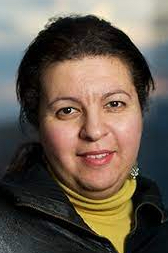
PhD.
PhD.
Dr. Mona Diab is a computer science professor and director of Carnegie Mellon University's Language Technologies Institute. Previously, she was a professor at George Washington University and a research scientist with Facebook AI. Before joining Meta, she led the Lex Conversational AI project within Amazon AWS AI. Her current focus is on Responsible AI and how to operationalize it for NLP technologies. Her interests span building robust technologies for low resource scenarios with a special interest in Arabic technologies, (mis) information propagation, computational socio-pragmatics, computational psycholinguistics, NLG evaluation metrics, Language modeling and resource creation. Mona has served the community in several capacities: Elected President of SIGLEX and SIGSemitic, and she currently serves as the elected VP for ACL SIGDAT, the board supporting EMNLP conferences. She has delivered tutorials and organized numerous workshops and panels around Arabic processing, Responsible NLP, Code Switching, etc. She is a cofounder of CADIM (Consortium on Arabic Dialect Modeling, previously known as Columbia University Arabic Dialects Modeling Group), in 2005, which served as a world renowned reference point on Arabic Language Technologies. Moreover she helped establish two research trends in NLP, namely computational approaches to Code Switching and Semantic Textual Similarity. She is also a founding member of the *SEM conference, one of the top tier conferences in NLP. Mona has published more than 250 peer reviewed articles..
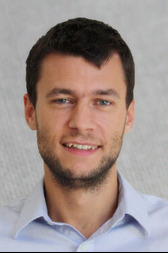
PhD.
PhD.
Dr. Stefano Ermon is an Associate Professor in the Department of Computer Science at Stanford University. He is affiliated with the Artificial Intelligence Lab. He is also a fellow of the Woods Institute for the Environment. His research is in machine learning and generative AI. He likes to develop principled methods motivated by concrete real-world applications and problems of broad societal relevance.
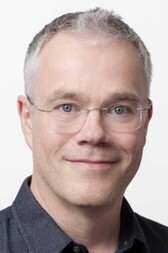
PhD.
PhD.
Dr. Marc Najork is a Distinguished Research Scientist in Google DeepMind, working on new techniques to make it easier for people to obtain relevant and useful information when and where they need it. Marc is interested in using generative language models to answer questions directly, rather than referring users to relevant sources. Direct answers represent a major paradigm shift in Information Retrieval, affecting the user experience, the fundamental architecture of the retrieval system, and the economic foundation of commercial web search and the entire web content ecosystem. Prior to joining Google, Marc was a Principal Researcher at Microsoft Research, and a Research Scientist at Digital Equipment Corporation. He is an ACM Fellow, IEEE Fellow, and a SIGIR Academy member.
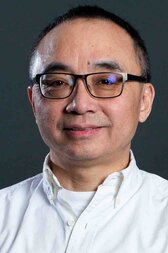
PhD.
PhD.
Dr. Huan Liu is a Regents Professor and Ira A. Fulton Professor of Computer Science and Engineering at Arizona State University. He obtained his Ph.D. in Computer Science at University of Southern California and B.Eng. in Computer Science and Electrical Engineering at Shanghai JiaoTong University. Before he joined ASU, he worked at Telecom Australia Research Labs and was on the faculty at National University of Singapore. At Arizona State University, he was recognized for excellence in teaching and research in Computer Science and Engineering and received the 2014 President's Award for Innovation. He is the recipient of the ACM SIGKDD 2022 Innovation Award. His research interests are in data mining, machine learning, feature selection, social computing, social media mining, and artificial intelligence, investigating interdisciplinary problems that arise in many real-world, data-intensive applications with high-dimensional data of disparate forms such as social media. His well-cited publications include books, book chapters, encyclopedia entries as well as conference and journal papers. He is a co-author of a text, Social Media Mining: An Introduction, Cambridge University Press. He is a founding organizer of the International Conference Series on Social Computing, Behavioral-Cultural Modeling, and Prediction, Editor in Chief of ACM TIST, and Field Chief Editor of Frontiers in Big Data and its Specialty Chief Editor of Data Mining and Management. He is a Fellow of ACM, AAAI, AAAS, and IEEE.
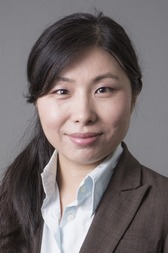
PhD.
PhD.
Dr. Yan Liu is a Professor in the Computer Science Department and the Director of Machine Learning Center at the University of Southern California. She received her Ph.D. degree from Carnegie Mellon University. Her research interest is machine learning and its applications to climate science, health care, and sustainability. She has received several awards, including NSF CAREER Award, Okawa Foundation Research Award, New Voices of Academies of Science, Engineering, and Medicine, Best Paper Award in SIAM Data Mining Conference. She serves as general chair for KDD 2020 and ICLR 2023, and program chairs for WSDM 2018, SDM 2020, KDD 2022 and ICLR 2022.
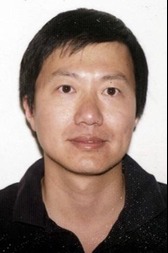
PhD.
PhD.
Dr. Wen Yu received the B.S. degree in automation from Tsinghua University, Beijing, China in 1990 and the M.S. and Ph.D. degrees, both in automatic control, from Northeastern University, Shenyang, China, in 1992 and 1995, respectively. From 1995 to 1996, he served as a lecturer in the Department of Automatic Control at Northeastern University, Shenyang, China. Since 1996, he has been with CINVESTAV-IPN (National Polytechnic Institute), Mexico City, Mexico, where he is currently a professor with the Departamento de Control Automatico. From 2002 to 2003, he held research positions with the Instituto Mexicano del Petroleo. He was a Senior Visiting Research Fellow with Queen’s University Belfast, Belfast, U.K., from 2006 to 2007, and a Visiting Associate Professor with the University of California, Santa Cruz, from 2009 to 2010. He also holds a visiting professorship at Northeastern University in China from 2006. Dr.Wen Yu serves as associate editors of IEEE Transactions on Cybernetics and Journal of Intelligent and Fuzzy Systems. He is a member of the Mexican Academy of Sciences.
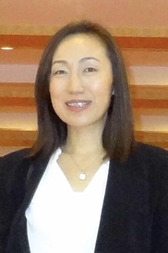
PhD.
PhD.
Dr. Xiaoou Li earned her B.S. in Applied Mathematics from Northeastern University, Shenyang, P.R. China, in 1991, and her Ph.D. in Automatic Control in 1995 from the same institution. She has been a Professor of Computer Science department at CINVESTAV-IPN, Mexico, since 2000. She was a Senior Research Fellow at Queen's University Belfast and University of California Santa Cruz in 2006 and 2010. Dr. Li is a regular member of the Mexican Academy of Science and a member of the National Researcher System of Mexico. Dr. Li's research spans machine learning, sustainable automation, time series analysis, social networks, knowledge-based systems, robot-assisted rehabilitation systems, Petri net applications and more, yielding 100+ papers in international journals, books, and conferences. Dr. Li actively organizes international events in IEEE RAS, SMC, CIS, and WIE societies. She chaired ICNSC'2016 and CASE'2022 and was Program Chair of SSCI'2023. Dr. Li served as editorial board member for IEEE Press. She's an associate editor for Engineering Applications of Artificial Intelligence (EAAI), IEEE Transactions on Automation Science and Engineering (T-ASE), IEEE/CAA Journal of Automatica Sinica (JAS), IEEE Access, and IEEE SMC Magazine.

